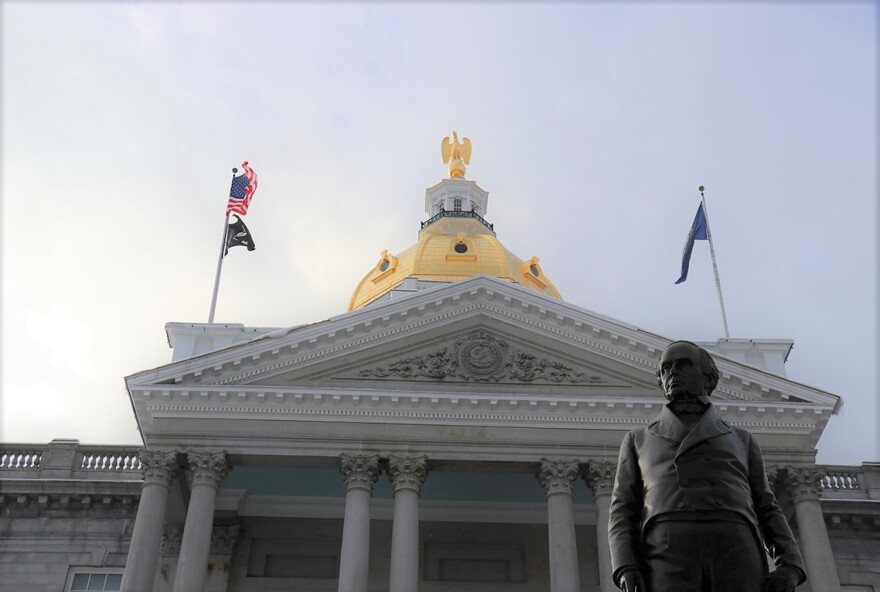The New Hampshire House’s Finance Committee voted Tuesday to cut roughly $300 million from Gov. Kelly Ayotte’s proposed state spending plan in a series of sweeping financial moves, including a $42 million reduction in payments to Medicaid providers, the elimination of the state’s family planning program, and a requirement that the state’s top health official achieve $48 million dollars in unspecified savings in her agency over the next two years.
Tuesday’s moves — which came just days before the committee is due to give final approval to the budget proposal and pass it on to the full House — showed the extent to which Republican lawmakers this year hope to prune state spending across the board, including reductions at public universities and colleges and the elimination of 100 jobs in the state prison system. But the debate on Tuesday was sharpest when Republican leaders moved to impose broad limits on diversity and equity mandates in state government, public higher education, and in every public school in New Hampshire — a push they argued was warranted by the 2024 election results and at least in part fueled by concern that not taking a stand against DEI would put New Hampshire at risk of losing federal money.
“The last election for president was heavily influenced by DEI, I think that is something everyone has heard of and is familiar with,” said Finance Chairman Rep. Ken Weyler in advocating for the limits.
Democrats on the committee objected to the move as lacking any prior public input or hearing.
“This is not appropriate to be in the budget,” said Rep. Rosemarie Rung of Merrimack.
The effort to add the DEI provisions initially failed, after two Republican lawmakers — Rep. Jess Edwards of Auburn and Rep. Brian Seaworth of Pembroke — joined Democrats to block it. A few hours later, however, the identical proposal passed along party lines. Democrats decried the turnabout and warned the policy would prompt costly lawsuits and political fallout.
“Are you ready for the consequences?” Rep Mary Hakken–Phillips, a Democrat from Hanover, asked Republicans on the committee. “Because they are coming, and it will be expensive, and you will be forever tied to this policy.”
Edwards, who had repeatedly referenced Martin Luther King Jr. before he voted down the anti-DEI policies earlier in the day, was by late afternoon invoking Elon Musk as he voted for them.
“I mean, in this era of doxxing and burning Teslas, that wasn’t a threat, was it?” Edwards said.
The testy climax to Tuesday's committee work capped what had been a largely collegial consideration of a spending plan that cut Ayotte's recommended appropriations across government.
The state University System faces a $80 million dollar reduction under the Finance Committee’s budget plan, including a $50 million cut in funding to UNH alone. The Department of Corrections would meanwhile be expected to leave all vacancies unfilled and layoff 100 current employees.
Other cuts include the closure of the Office of Child Advocate and the elimination of the New Hampshire Human Rights Commission. State-funded circumcisions would be nixed under the House budget after the committee voted to end reimbursement for the procedure under the state’s Medicaid program.
The myriad reductions come as lawmakers struggle to navigate a variety of financial challenges, including slacking collections from key state taxes, lost revenue from the GOP-backed repeal of the state’s tax on interest and dividends income, and national economic uncertainty.
Among other things, the House budget plan banks on fresh revenue from gambling, including the expectation that the state will net millions of dollars from video slot machines that aren’t yet legal here. The budget also relies on hiking an array of government fees, many of which haven’t been lifted in years.
But the expiration of pandemic-related federal aid programs that pumped more than a billion dollars into state coffers during the last two budget cycles remain a significant budget pressure this year. So too are the deep and ongoing cuts to federal spending initiated by the Trump administration. Last week, the state was told $80 million dollars in expected public health funding was being cancelled.
The Finance Committee will finalize its work on the budget Thursday. The full House will vote on the package next week, after which the state Senate begins its own work on a spending plan.








